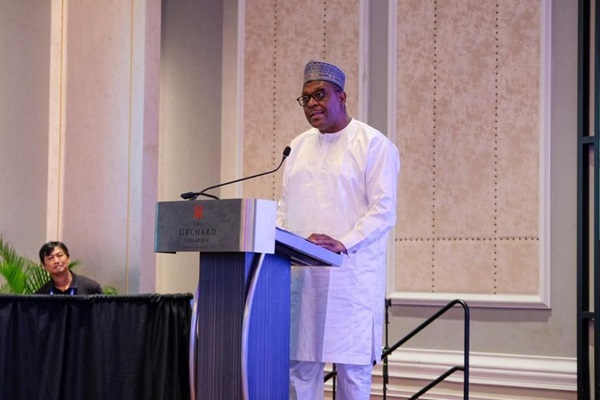
The Federal Government emphasised the need to strengthen Nigeria’s healthcare system for national security and economic prosperity amid global uncertainties and pandemic threats.
Speaking at the Nigeria Development and Finance Forum (NDFF) 2024 Conference in Abuja, Minister of Health and Social Welfare, Prof. Muhammad Pate underscored the critical importance of investing in health resilience to ensure overall stability.
The NDFF conference, organised to offer insights into Nigeria’s policy landscape and investment opportunities, highlights the country’s commitment to domestic policy matters and international engagement. Prof. Pate drew attention to the lessons learned from the 2014 Ebola outbreak in Lagos, emphasising the interconnectedness of health resilience and stability. He called for collaborative efforts between the public and private sectors, leveraging digital technology to transform Nigeria’s healthcare system.
In his keynote address, Pate outlined a visionary approach that prioritises basic health infrastructure and education, particularly in underserved areas. He stressed the urgency of investing in human capital and fostering consensus to drive sustainable growth and societal well-being. Pate emphasised the link between healthcare resilience and national security, advocating for community-based solutions and cross-sector coordination.
Highlighting the importance of community-based approaches like the Social Action Fund, Pate underscored the need to address basic infrastructure needs in rural areas. He emphasised the role of the Federal Government in engaging with stakeholders across sectors to improve human and social capital. Pate called for investments in basic health and education, with a focus on girls, women and children, to drive economic growth and job creation.
Director-general of the National Agency for Food and Drug Administration and Control (NAFDAC), Prof. Moji Adeyeye highlighted the agency’s role in driving economic growth and public health initiatives through a robust pharmaceutical sector. She announced significant progress in Nigeria’s pharmaceutical industry, with a focus on local manufacturing and quality control measures. Notably, 20 newly registered local drug manufacturers have attained WHO compliance, marking a milestone in Nigeria’s pharmaceutical landscape.
CEO of Financial Nigeria International and director of NDFF, Mr. Jide Akintunde outlined the conference’s goal to support transformative reform agendas for Nigeria’s economy. He highlighted the potential of the global blue economy and emphasised the need for policy support, market frameworks, and investments to realise Nigeria’s blue economy potential.
The NDFF conference aims to showcase sustainable investment opportunities worth $100 billion annually and feature discussions on unlocking Nigeria’s investment potential across various sectors. Additionally, two state governments will present their reform agendas and investment opportunities during the conference, highlighting Nigeria’s commitment to economic revitalisation and growth.

